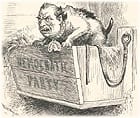 “You have to allow me to spend quality time with my children, I said to my emotionally abusive husband. You’re being unreasonable. Why can’t you just behave reasonably towards me? I’ve always tried to do everything I can to make you happy.”
“You have to allow me to spend quality time with my children, I said to my emotionally abusive husband. You’re being unreasonable. Why can’t you just behave reasonably towards me? I’ve always tried to do everything I can to make you happy.”
You’d think, wouldn’t you, that a partner should show some consideration – especially where his own wife and children are concerned. But this client’s husband seemed hell bent on not showing any.
That’s been a bit of a theme running through the week: one emotionally abused client after another asking: “Why does he have to behave like that? What is he getting out of it? And how do I recover from his emotional abuse?”
“What is he getting out of it?” is, actually, a great question – and one which highlights the gulf that divides you and your emotionally abusive partner. Another great question might be: “Who are you allowing to ride roughshod over your heart?”
Because you get nothing out of Your emotionally abusive partner’s damaging behavior, it’s easy to assume that he can’t be getting anything out of it, either.
But that begs the question: why would he do something that serves no point whatsoever.
You underestimate your emotionally abusive husband – at your peril – if you imagine that his behaviour serves no useful purpose.
His behaviour may serve no purpose that is useful to you but, remember, this is someone who is profoundly self-interested: if it doesn’t serve some purpose he perceives as useful, he won’t do it.
It’s that simple.
That’s why, most of the time, he doesn’t have to behave decently towards you. From his skewed standpoint, behaving decently serves no useful purpose: he doesn’t need to. You’ll put up with him, anyway.
So, what does he get out of the bad behavior?
What does he get out of everything he does?
A sense of his own power.
Now, that may well not be your definition of power. But, let’s face it, it’s only his definition that counts in the relationship.
The bottom line is this: his bad behaviour fuels his sense of his own power.
Think playgroup, if you will.
Picture the two year old little horror at playgroup. He’s the one who has realised that he can strike terror into his mother’s heart by the sheer force of his temper tantrums. He does it at home. He do it at the supermarket. And, boy, can he do it at playgroup!
It works especially well at playgroup – because his mother feels like the Total Failure who cannot control her child.
So, at playgroup, little Johnny has an absolute field day.
 What does he do? He takes all the toys off other children, and insists on keeping them all for himself. It’s true dog in a manger stuff. (Although, I have to say that, as far as I can see, that expression gives dogs a bad name. I’ve certainly come across far, far more emotional abusers in the manger than I ever have dogs.)
What does he do? He takes all the toys off other children, and insists on keeping them all for himself. It’s true dog in a manger stuff. (Although, I have to say that, as far as I can see, that expression gives dogs a bad name. I’ve certainly come across far, far more emotional abusers in the manger than I ever have dogs.)
Still, little Johnny is intent on doing his very best brat-in-a-manger routine, and his mother is C-R-I-N-G-I-N-G.
Can Little Johnny Manger play with all those toys that he’s snatched?
Of course, he can’t.
Does he even want to play with all those toys? Probably not.
But does it matter?
Not to him. Because he knows that by holding on to all those toys, he’s preventing the other kids from having the satisfaction of playing with them.
That’s good enough for Little Johnny Manger.
Mortified, his poor mother tries appealing to his better nature. (Little Johnny Manger couldn’t care less about his better nature.)
What Little Johnny Manger cares about is standing out, getting his own way, being the most powerful two year old in the playgroup – and he’s achieving that, isn’t he?
He has his moment in the limelight.
Now, for Chronological Little Johnny Manger, it will all probably end in tears, quite quickly. Some adult will come along, take the toys off him, and tell him that kind of behaviour isn’t acceptable.
For Emotional Little Johnny Manger, things will most likely go quite differently. The person he is shaming – that is, you – will appeal to his better nature.
Emotional Little Johnny Manger will chuckle inwardly. Even while he throws his textbook-perfect rant..
Why?
Because you are allowing him to continue.
Horrible as it is to have to admit this to yourself, you are enabling that behaviour, by appealing to him to do something about it.
Is Chronological Little Johnny Manger likely to stand up and gracefully return the toys to the children he snatched them from?
By the same token, is Emotional Little Johnny Manger likely to share his favorite thing – power – with his mommy-‘partner’?
You already know the answer to that, don’t you?
(Hint: It’s a resounding “NO!”)
Which means, it could be time for you to take a good, hard look at what you are allowing. And what you could be doing instead.
Isn’t it time you put a stop to letting Emotional Little Johnny Manger ride roughshod over the entire playgroup?

Annie Kaszina, international Emotional Abuse Recovery specialist and award-winning author of 3 books designed to help women recognise and heal from toxic relationships so that they can build healthy, lasting relationships with the perfect partner for them, blogs about all aspects of abuse, understanding Narcissists and how to avoid them and building strong self-worth. To receive Annie’s blog direct to your Inbox just leave your details here.
The 5 Simple Steps to Healing from Narcissistic Abuse
Over the next 5 days, I'll send you some lessons and tips that I've found have really helped women to heal from narcissistic abuse. Starting with the basics.

